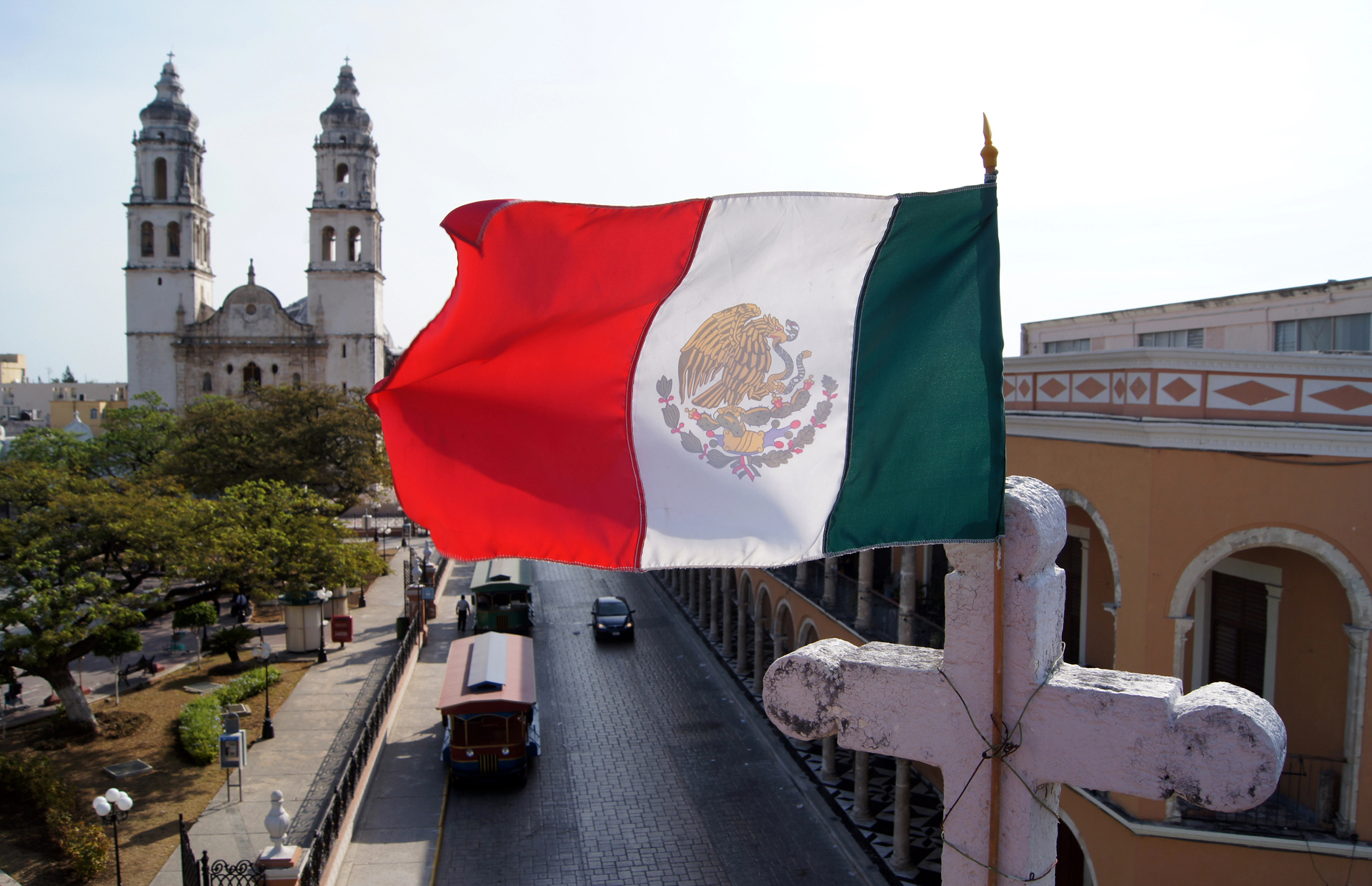Mexico has always been a popular destination for Americans, and after the pandemic the number of US expats moving to Mexico has grown exponentially. Living in Mexico is an expat dream, anything that you might want, from the most beautiful Quintana Roo and Oaxacan beaches to vibrant city life of Mexico City. And the food!
But even when moving to Mexico, the US is not done with you just yet. As a US citizen or green card holder, you must file a US tax return even if you do not live in the US.
Here is our US tax guide for Americans living in Mexico where we are addressing common expat tax questions. (For a general overview, check out our US expat tax guide.)
In this guide specific to US citizens in Mexico we cover:
Do Americans pay US taxes when living in Mexico?
Even when you retire in Mexico or work remotely from Mexico, if you are a US citizen or green card holder and you meet the tax filing thresholds, you must file a US tax return. It doesn’t matter where you live or derive your income. In addition to a regular tax return, you could also be required to report your foreign bank accounts and assets if those are over a certain amount.
US expats who live in Mexico can decrease their taxable income by using the Foreign Earned Income Exclusion (FEIE). If your taxable income is higher than FEIE, there are additional tools to decrease taxable income or/and US taxes such as Foreign Housing Exclusion or Deduction and the Foreign Tax Credit.
We explain those and how they apply to US citizens in Mexico in this tax guide.
How American Expats in Mexico can use the Foreign Earned Income Exclusion
The Foreign Earned Income Exclusion (FEIE) is one of the best ways to reduce your US income tax. Taxpayers must pass either the physical presence test or the bona fide residence test, to qualify for FEIE.
The physical presence test is a quantitative test. To pass you must spend no less than 330 days in a 12-month period in one or more countries outside of the US. We explain all the details in our Guide to the Physical Presence Test.
The bona fide residence test, on the other hand, is a qualitative test. To pass it, you must establish residency in a foreign country or countries with no intention of returning to live in the United States. Only brief or temporary trips are allowed. It gives you a bit more flexibility with spending time back in The States. However, because the test is a bit more subjective, it is harder to prove to the IRS in case of an audit.
If you plan to use bona fide residency in Mexico to claim the Foreign Earned Income Exclusion, consider obtaining a Mexican driver license or Mexican tax ID. In our Guide to the Bona Fide Residence Test, we provide more guidance and what else you can do to establish residency.
With the Foreign Earned Income Exclusion, you can exclude up to $120,000 in foreign earned income from US income taxes (2023). Moreover, couples who both live and work abroad can exclude up to $240,000 from their 2023 taxes. The IRS updates the maximum FEIE each year.
Exclude or deduct housing expenses in Mexico
If your taxable income exceeds the FEIE threshold, you can exclude or deduct certain Mexican housing expenses using the Foreign Housing Exclusion or Deduction. The most common deductible housing expenses are rent, furniture rentals, and utilities.
For 2022, Americans in Mexico using the Foreign Housing Exclusion or Deduction could exclude or deduct eligible expenses that exceed $17,920 and are below $33,600. Mexico City is considered a high housing cost city. Therefore, Americans in Mexico City could exclude up to $47,900 of housing expenses.
The IRS updates “the floor” and “the ceiling” for the Foreign Housing Exclusion or Deduction each year towards the end of the year.
Should Expats in Mexico use Foreign Tax Credit instead of FEIE?
Mexico’s tax rates vary from 0%-35%, so they tend to be a bit lower than US tax rates. Therefore, it is often better to use the FEIE first, and then apply a foreign tax credit to any income that exceeds the FEIE and foreign housing exclusion.
However, there are some drawbacks to excluding all earned income by using the FEIE, for example when it comes to IRA contributions or Child Tax Credits.
If Americans living in Mexico should use the Foreign Tax Credit instead of the FEIE is highly dependent on their personal circumstances. Please talk to an experienced tax advisor.
Do Americans living In Mexico also pay Mexican taxes?
In many cases, Americans living in Mexico also need to file a Mexican tax return. (We specialize on the US side of expat taxation. Here we only provide an informational overview of some taxes that Americans in Mexico could encounter. Please consult with a local tax advisor about your specific situation.)
The SAT (Servicio de Administración Tributaria, or Tax Administration Service) is the Mexican equivalent of the IRS. The SAT levies fines for not filing taxes.
Mexican income tax (ISR) applies to both residents and non-residents. Residents of Mexico are taxed on their worldwide income. Non-residents pay taxes only on the income sourced in Mexico. The tax rates are progressive and differ between residents and non-residents.
So, who is a Mexico tax resident?
If you have a home (or home base) and spend more than 180 days in a given year in Mexico, you become a tax resident.
But even when you spend less time there, you might still be a tax resident if the SAT considers Mexico your “center of vital interests”. This would be the case if either 50% of your income comes from Mexican sources, or Mexico is the primary place of your professional activities. SAT may also look at other economic ties. Please consult with a Mexican tax advisor.
If you meet the requirements, you must file and pay taxes in Mexico.
Mexican businesses and foreign entities with permanent establishment in Mexico must also file taxes. Please consult with a local tax advisor.
Filing taxes in Mexico and USA – Where to file first?
Typically, a US taxpayer would file a tax return in their host country first. Then, they include the information, e.g., any foreign tax paid, in their US tax return. This can pose a timing challenge.
Mexican tax returns are due on April 30 of the following year. The due date for US tax returns normally is April 15 of the following year, but Americans abroad get an automatic 2-months extension to file their tax return.
Try to file your taxes in Mexico early. If you need more time for your US return, you can request an extension to October 15. Still, you need to pay an estimate by the original due date to avoid any late fees and penalties.
Mexico – US Totalization Agreement and Income Tax Treaty
USA and Mexico have a tax treaty in place. Although a totalization agreement between Mexico and the United States was signed, it has not been approved yet, therefore it is not in effect.
The totalization agreement is an agreement between countries that eliminates dual social security taxation in certain cases.
The income tax treaty is an agreement between countries to prevent double taxation.
The Mexico-US tax treaty is a complex document, that describe the rights of each country. Get professional advice on how to leverage the treaty to optimize your situation.
Foreign bank accounts and assets reporting – FBAR and Form 8938
Any US person with an aggregate of $10,000 or more in non-US banks must report their accounts to the US government. This is not part of the tax return but submitted separately on FinCEN Form 114, also called the FBAR. This form is for informational purposes only.
Depending on your filing status and where you live, you may have to file an additional reporting form, the Form 8938. This may be required with as little as $50,000 in foreign financial assets.
Real estate is not considered a financial asset for the purposes of Form 8938, but stock in a foreign corporation is.
Filing your US expat taxes while living in Mexico
As you can see, moving to Mexico from the United States can make your tax situation a lot more complex. That doesn’t mean that you will end up paying more taxes. Fortunately, the US tax code has specific provisions that help expats save taxes. (Many US-based tax accountants are not very familiar with those sections of the tax code.)
We’ve helped many American clients in Mexico, from retirees and employees to business owners and digital nomads. Schedule a consultation with one of our experts.








